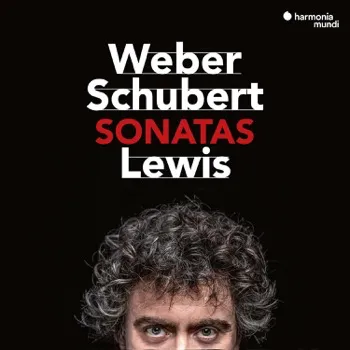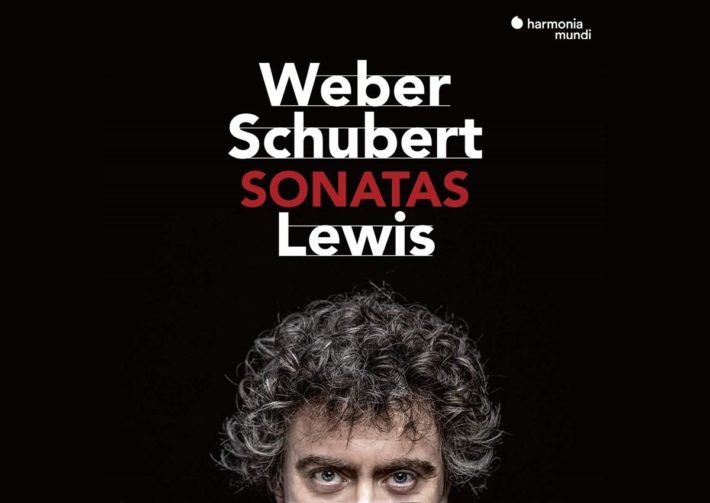After a remarkably consistent flow of impressive releases of the Viennese repertoire, including his recent Haydn release reviewed here, Paul Lewis takes a bit of a risk with this release, combining two sonatas not heard often in concert or in the studio.

Weber’s second piano sonata (Op. 39), was a very influential and popular in its day, celebrated by pianist and composers such as Liszt and Chopin, the former played it continuously in recitals and oversaw a print edition of it, rather loose with the original text. The latter reportedly gave it for his pupils as a mandatory piece.
Though it went into somewhat of obscurity in the 20th century, it was also decently represented on record. Medtner-pioneering pianist Hamish Milne made a digital recording of all the piano sonatas in the 1990s, and this particular sonata was represented most gratifyingly by Alfred Brendel in a performance suspiciously missing from the catalog, originally including Brahms’ 4 Ballades. Most notably, Alfred Cortot’s 1939 recording from Abbey Road studios gives a hint of the 19th century way with this sonata, including the Liszt additions.
Paul Lewis, as heard in this album, seems to take all of that tradition into account, absorb it and then dispensing with any unnecessary mannerism to give a pure, warm-hearted and dedicated account. Listen, as an example, to the bass line and subsequent right-hand melody, marked “Dolce” in the score (2:37 in the first movement). One can rarely hear a better exemplification of “sweetness” in piano playing as we have at this moment. The whole movement is perfectly coherent and the sonata’s structure clearly and authoritatively projected, without sounding one bit studied nor cold.
The second movement is mesmerizing, with poignant breaks of the musical phrases and profound depth in the voicing of the thick chords that ends it (The first minute of this movement here is a world of color shading and remarkable pianism).
The smile returns in the third movement, again well exemplifying the “Menuetto Capriccioso” title, marked “Presto Assai”. Yet in the midst of this storm hear how Lewis manages to change the mood in the trio section, while somehow keeping in the back of our minds the storm that just passed, and yet to return.
The finale, most likely a movement written earlier than the three perceiving it, is perhaps a weak link of this piece, yet Lewis is performing it with a relaxed charm, as a culmination rather than an anticlimax.
As mentioned earlier, there are some good proponents of this often overlooked sonata, namely Brendel (nla), Milne and Cortot. This new version goes straight to the top of the recommendations.
It’s difficult to pinpoint why Lewis’ way with Schubert is so special. Maybe this: Like in his wonderful series for Harmonia Mundi of the complete Impromptus, Moment Musicaux and late sonatas, there is profound humanity to the music making, one that is, yet, never in doubt of the musicological mind behind it. Close listening along the score proves how Lewis injects unique character within the written instructions, such as in the variation of the second subject at 1:40 in the first movement.
The second Andante movement, the piano writing of which can be imagined taken directly from a Schubert lieder, is marvelously done, pacing along towards the climatic octaves later on to the utmost effectiveness. The third movement is interjected with playfulness just right for a “Scherzo Allegretto”. The finale, so severe in other performances, is a combination of cheerful triumph and vainness charm.
Admittingly not on the same artistic level as the late piano sonatas, Lewis elevates D.575 to new heights, sharing convincing performances from the past – Wilhelm Kempff is at his best here, and Andras Schiff’s Decca account is no less convincing, as always full of originality and “parlando” phrasing. Lewis can be considered, like in his previous Schubert albums, to belong to an elite group of great Schubertenians.
Weber – Piano Sonata No. 2, Op. 39
Schubert – Piano Sonata No. 9, D.575
Paul Lewis – Piano
Harmonia Mundi, CD HMM902324




















